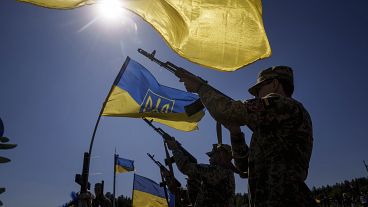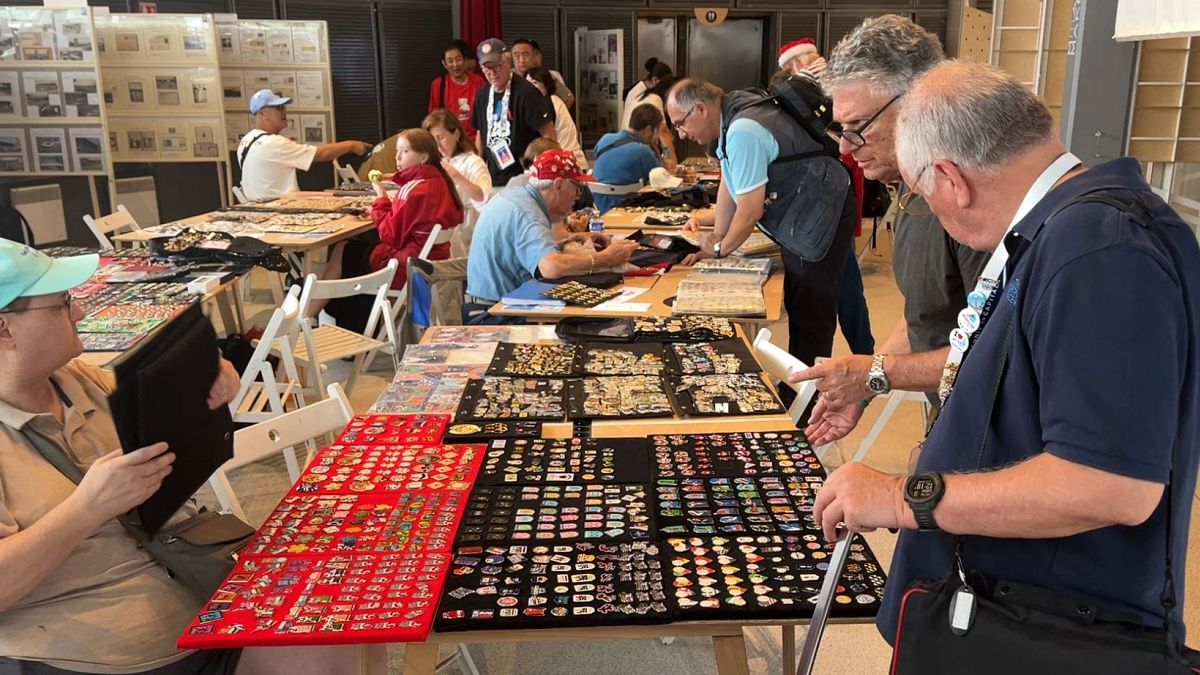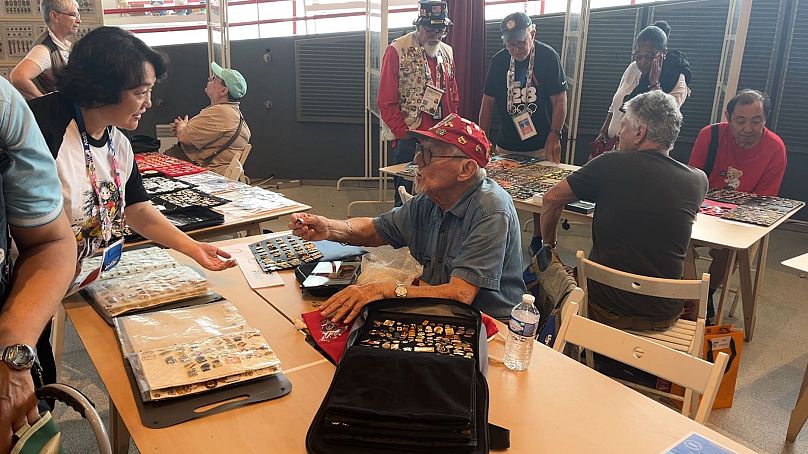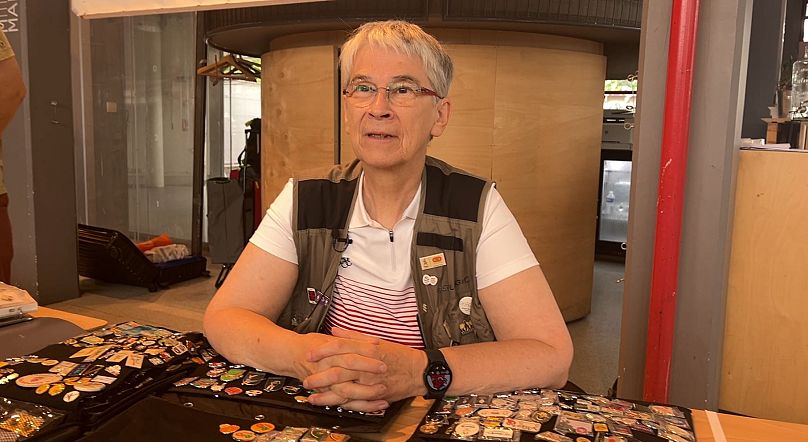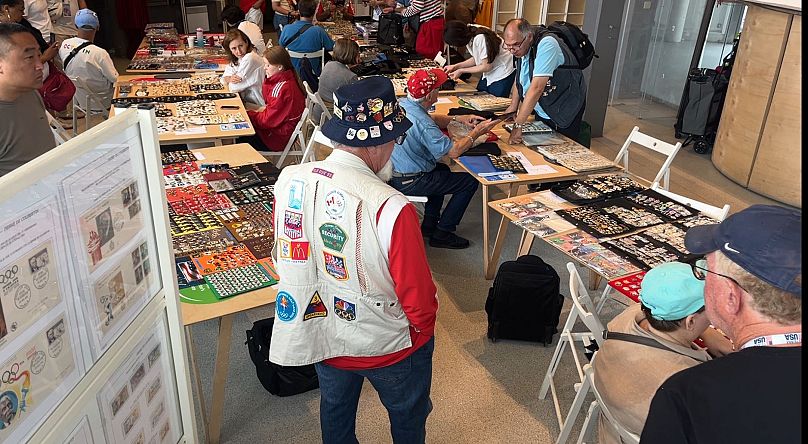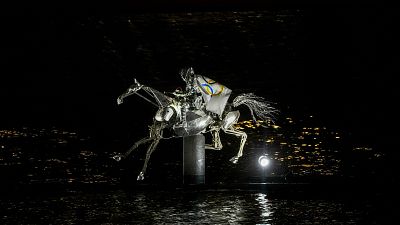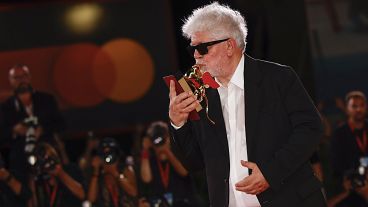For the first time in Olympic Games history, trinket collectors have their own official trading space. For many, treasuring Olympic memorabilia is a gold medal sport in itself.
“I have been trading pins and medals for 40 years”, Robert Prat from Monaco tells Euronews Culture.
A keen memorabilia collector, the 87 year old has a “collection of around 5,000 Olympics pins from around the world”. The ex-fencing coach plans to divide his time between watching sporting events and meeting other collectors.
However, managing such a treasure trove is no mean feat, requiring organisation and space. “I store all of my collectables in shoe boxes which are piled up around my house. My wife used to like buying shoes so it was a good compromise!", he says while laughing.
Scrolling through his tablet, Prat proudly shows off his meticulously organised pins, lined up in red shoe boxes. "I only bring the pieces I have as doubles to swap. My most important items remain at home, for me it's about meeting like-minded people and admiring their collections," he adds.
Paris hosts the first official collectors' space
For the first time in the history of the Olympic Games, collectors have their own dedicated trading space, located in the Parc des Nations fan zone in northern Paris. Here, collectors from around the world can bond over a shared passion.
"Stamps used to be the most popular collectable, but now it's more about pins. However, a collection can really have anything in it, so long as it relates to the Olympics," says Stéphane Hattot, President of the French Association of Olympic Collectors and Sporting (AFCOS).
Hattot's personal reserve is significantly heavier than a bag of pins - to transport it he even had to attach a trailer. "I am crazy about weightlifting, I brought some Olympic weights to display here. Some of them not only weigh over 100kg but are also more than 100 years old."
Olympic memorabilia started in 1896
US gymnast Simone Biles attracted her fans' attention when she brought an array of gold-coloured Olympic pins with her name on them to trade in the French capital. But this frenzy for Olympic memorabilia is far from new, athletes are said to have worn cardboard badges - similar to modern day pins - during the first modern day Olympics held in Athens in 1896.
“The objects which were created for the 1896 Olympics are very different to what is being made for Paris 2024. That is part of what is so interesting, we build our collections to tell a story”, says Catherine Salaün, vice-president of the French Association of Collectors of Olympics and Sports.
Salaün qualifies herself as "an Olympics superfan", having been to the Olympics 14 times - that includes winter and summer editions. "Paris is number 15!", she says with a beaming smile.
A way to subsidise Olympic tickets
The cost of going to the games can rapidly rack up into the thousands. So for many collectors, trading can be a way of making some pocket money to subsidise their trip.
"I bring pins that I have not paid a lot of money for. If I sell them or trade them, it can reduce the cost of my trip", explains Scott Reid, an Olympic collector from the State of Georgia in the USA. He has an entire room dedicated to his collection in the basement of his home.
For those who can't make it to the official venue, trading can happen anywhere and everywhere, assures Reid. "If you see someone with a bag or lanyard with pins on them, it means it is ok to go up to them and talk to them, maybe trade something."
Although he may be able to make a bit of cash, for Reed it's above all "about the interactions and meeting people from around the world - that is the Olympic spirit".

